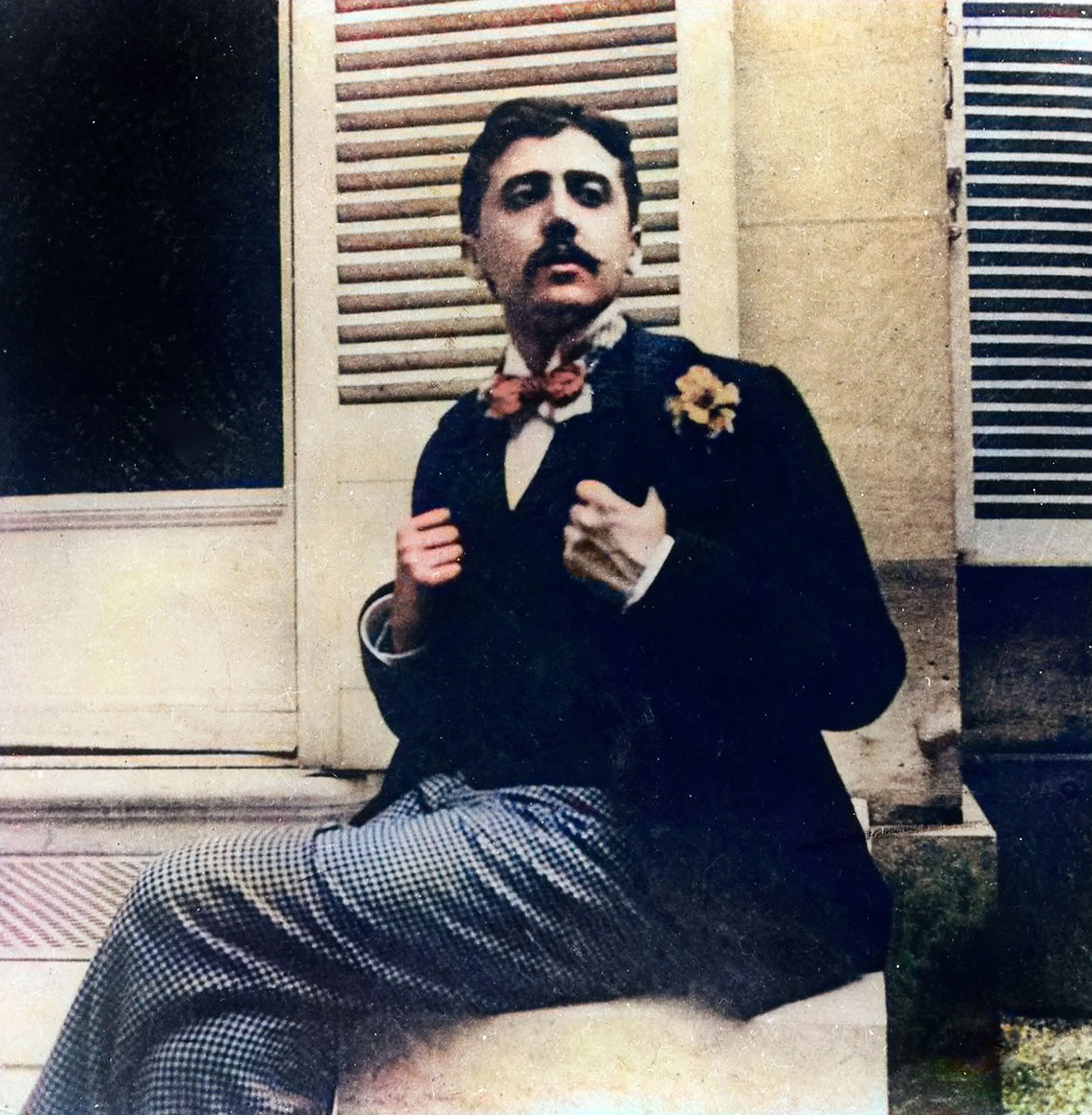
Roust died at fifty-one, in Paris, of pneumonia, on November 18th, and last year was the centenary of his death. Since I first read “In Search of Lost Time,” his immense and unique autobiographical novel, a long passage about what writing is—from “Time Regained,” the seventh and last volume—has stayed with me. It takes place at the mansion of the Princess Guermantes, where the narrator has been invited to a musical reception. On his way to the Guermantes’s, he encounters by chance M. de Charlus, a member of the Guermantes family. Ancient and ruined by a stroke, Charlus is like a ghost of a possible future for the narrator himself. At this point in the novel, the narrator is nearly middle-aged, bored, over-sophisticated, and aware that, for lack of talent, he is not the writer he had dreamed of becoming. Everything in the first six volumes is behind him—Swann, Gilberte, Vinteuil, Albertine—although unwritten as yet.
In the mansion’s courtyard, avoiding a departing car, he steps back onto two uneven stones, and is suddenly overtaken by the memory of standing on two uneven stones in the baptistery of St. Mark’s, in Venice. The intense happiness that he feels in the presence of this memory displaces his depression. It is a happiness that he has felt before at select times in his life—at “the sight of trees” near the seaside resort of Balbec, at “the twin steeples of Martinville,” sensing “the flavor of a madeleine dipped in tea.”
Highlights from the week in culture, every Saturday. Plus: each Wednesday, exclusively for subscribers, the best books of the week.
Inside the mansion, two similar experiences follow almost immediately: the noise of a spoon clanging against a plate recalls, years before, a train stopped in a forest; moments later, the starched texture of a napkin evokes the first day of his arrival at Balbec. These memories are an intervention at a fundamental level in his life as a writer. In the past, as with the madeleine’s bringing back images of his childhood in Combray, the narrator had simply luxuriated in the dazzle of the emotion. At this late stage, however, he is determined to solve the “riddle of happiness” brought on by these experiences. They are not lifeless “snapshots” of an intellectual act of remembering. They bring with them the world of their existence—“the simplest act or gesture remains immured as within a thousand sealed vessels, each one of them filled with things of a colour, a scent, a temperature that are absolutely different one from another.” Proust is famously meticulous in delineating the depth of these resurrected memories. Each of them encases a felt meaning that can be translated into “its spiritual equivalent.” That translation is vital to Proust’s power: “And this method, which seemed to me the sole method, what was it but the creation of a work of art?”
During this long passage about writing, Proust is, step-by-step, forging the original soul of his book and, at the same time, his own deliverance. It is as if the involuntary memories and images of past experiences are the inner book that he alone, in the living present, is poised to read: “This book, more laborious to decipher than any other, is also the only one which has been dictated to us by reality, the only one of which the ‘impression’ has been printed in us by reality itself.” As for writing, Proust observes that “the impression is for the writer what experiment is for the scientist, with the difference that in the scientist the work of the intelligence precedes the experiment and in the writer it comes after the impression.”

Felecia Phillips Ollie DD (h.c.) is the inspiring leader and founder of The Equality Network LLC (TEN). With a background in coaching, travel, and a career in news, Felecia brings a unique perspective to promoting diversity and inclusion. Holding a Bachelor’s Degree in English/Communications, she is passionate about creating a more inclusive future. From graduating from Mississippi Valley State University to leading initiatives like the Washington State Department of Ecology’s Equal Employment Opportunity Program, Felecia is dedicated to making a positive impact. Join her journey on our blog as she shares insights and leads the charge for equity through The Equality Network.



